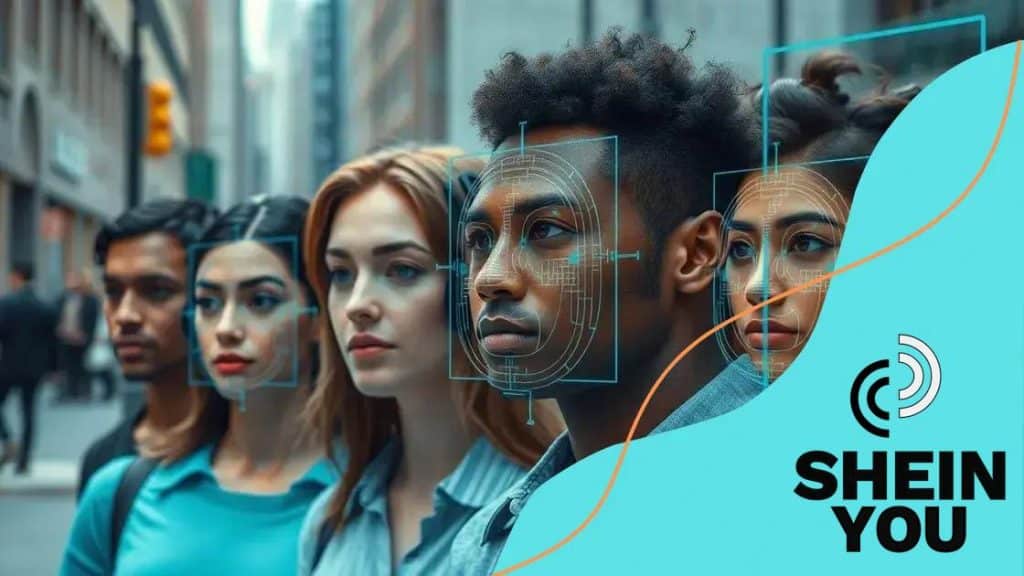Privacy concerns rise as facial recognition tech expands

Advertisements
Privacy concerns rise as facial recognition tech expands, leading to significant debates on how to protect individual privacy rights while balancing enhanced security measures in public spaces.
Privacy concerns rise as facial recognition tech expands, shaping how we interact with technology daily. Have you considered how this affects your personal privacy? Let’s dive into the complexities of this evolving issue.
Advertisements
Understanding facial recognition technology
Understanding facial recognition technology is essential in today’s digital world. This technology uses artificial intelligence to identify or verify a person’s identity by analyzing facial features. As it becomes more prevalent, many questions arise about its implications for privacy and security.
How Facial Recognition Works
Facial recognition systems capture an image of a person’s face and convert it into a mathematical representation. Key points include:
- Image capture through a camera
- Facial feature extraction and analysis
- Comparison with a database of known faces
This process allows for quick identification, but accuracy can vary based on lighting and angle. It’s important to note that as this technology advances, concerns about its accuracy and bias have also grown.
Advertisements
Applications of Facial Recognition
Facial recognition has various applications across different sectors:
- Security: Used in surveillance systems to identify criminals.
- Marketing: Analyzes customer demographics in retail environments.
- Healthcare: Assists in patient identification and management.
While the benefits are substantial, they come with significant privacy concerns. Individuals are increasingly worried about how their data is collected and used, often without explicit consent.
In conclusion, understanding facial recognition technology is crucial as it shapes our interactions with the digital world. Awareness of its functionalities and implications can empower you to navigate the complexities of privacy in this technology-driven era.
The impact of facial recognition on privacy
The impact of facial recognition on privacy cannot be overlooked as this technology becomes increasingly common. Facial recognition systems collect and analyze images of individuals, leading to serious questions about personal privacy and data security.
Understanding Privacy Risks
When facial recognition is applied in public spaces, individuals may not realize they are being monitored. Key privacy risks include:
- Invasion of personal space without consent.
- Potential misuse of data by organizations.
- Government surveillance and tracking.
These risks can make many people feel uncomfortable. It raises the issue of whether individuals can maintain their anonymity in public areas. As technology grows, so do worries about who has access to this data.
Data Storage and Security
Data storage is another crucial aspect of facial recognition technology. Companies often store facial data in databases, creating a target for cyberattacks. Security breaches can expose sensitive information, leading to identity theft.
Moreover, the lack of clear regulations allows companies to use data for purposes not originally intended. This may include marketing strategies or sharing information without consent.
The relationship between facial recognition and privacy is complex. As technology shifts, so do the implications for personal freedom. Therefore, it is vital for users to stay informed and advocate for stronger privacy measures.
Current laws and regulations around facial recognition

Current laws and regulations around facial recognition technology are evolving as this technology advances and becomes more widespread. Many countries are grappling with how to protect individual privacy while balancing the benefits of enhanced security.
Global Perspectives on Regulation
Different regions have adopted varying approaches to regulating facial recognition.
- The European Union is proposing strict regulations to limit its use, especially in public spaces.
- In the United States, regulations differ by state, with some implementing bans on facial recognition in law enforcement.
- Countries like China embrace facial recognition for security but face criticism over citizens’ privacy.
As regulations differ, the debate about appropriate usage continues to gain traction. Public sentiment often influences lawmakers to act in favor of more stringent rules that protect personal freedoms.
The Role of Consent and Transparency
One important aspect of current regulations is the requirement for consent. Companies must inform individuals if their faces are being scanned and how the data will be used. This transparency allows people to make informed decisions.
However, many regulations remain vague, leading to confusion among consumers and organizations. The growing reliance on facial recognition technology urges lawmakers to clarify how data can be used and stored. Ongoing discussions are essential to ensuring that privacy rights are upheld.
Overall, the landscape of laws and regulations around facial recognition is complex. As discussions continue, both technology developers and policymakers must collaborate to find a balanced approach.
Real-world implications of facial recognition
Real-world implications of facial recognition technology extend far beyond its technical capabilities. As this technology becomes integrated into daily life, it influences various aspects of society, from security to personal privacy.
Enhancement of Security Measures
Facial recognition is widely used to enhance security in public areas. It helps law enforcement identify suspects quickly and monitor crowd behavior. For instance:
- Airports use facial recognition for faster boarding and enhanced safety.
- Retailers monitor customers to prevent theft and analyze shopping patterns.
- Public events employ this technology to ensure safety by identifying potential threats.
While these applications can be beneficial, they also raise questions about surveillance and the extent to which individuals are monitored in public spaces.
Impact on Personal Privacy
The increased use of facial recognition has significant implications for personal privacy. Individuals often do not know when their faces are being scanned or how that data is used. This lack of awareness can lead to:
- Feelings of being watched or tracked.
- Concerns about data sharing without consent.
- Potential misuse of information by third parties.
As facial recognition technology advances, it is essential to balance its benefits with the need for privacy rights. Public discourse and awareness can help guide efforts to ensure that technology serves society without encroaching on individual freedoms.
Future of facial recognition technology and privacy
The future of facial recognition technology and privacy is a topic of considerable debate as advancements continue to reshape its landscape. With rapid developments in artificial intelligence, we are likely to see both improvements in accuracy and an expansion of use cases.
Advancements in Accuracy and Efficiency
As algorithms improve, facial recognition technology will become more accurate and efficient. This can lead to:
- Faster identification in crowds.
- Better recognition across diverse demographics.
- Increased reliability under varying conditions, like poor lighting.
These enhancements can make systems more effective for security and safety purposes. However, they also raise ethical questions regarding how this data is used and stored.
Impact on Privacy Regulations
As the technology advances, facial recognition will likely prompt further discussions on privacy regulations. Governments may need to implement stricter laws to protect individuals from potential abuses. Future regulations might focus on:
- Clear guidelines on data collection and usage.
- Requirements for user consent before scanning.
- Stronger penalties for misuse of facial data.
These changes aim to ensure that while technology advances, personal privacy remains safeguarded.
In conclusion, the trajectory of facial recognition technology will continue to challenge our views on privacy. Ongoing conversations among technologists, lawmakers, and the public are essential to navigate this evolving landscape effectively.
FAQ – Frequently Asked Questions about Facial Recognition Technology
What are the main benefits of facial recognition technology?
Facial recognition technology enhances security in public spaces, assists law enforcement in identifying suspects, and streamlines processes like airport boarding.
How does facial recognition impact personal privacy?
Facial recognition can lead to concerns about surveillance and the potential misuse of personal data, raising questions about individual privacy rights.
Are there regulations regarding facial recognition technology?
Yes, regulations vary by region, with some areas proposing stricter laws to protect individuals from unauthorized data collection and surveillance.
What should I be aware of when using facial recognition in my business?
It’s important to ensure transparency in data collection, obtain consent from individuals, and comply with local laws regarding privacy and usage.